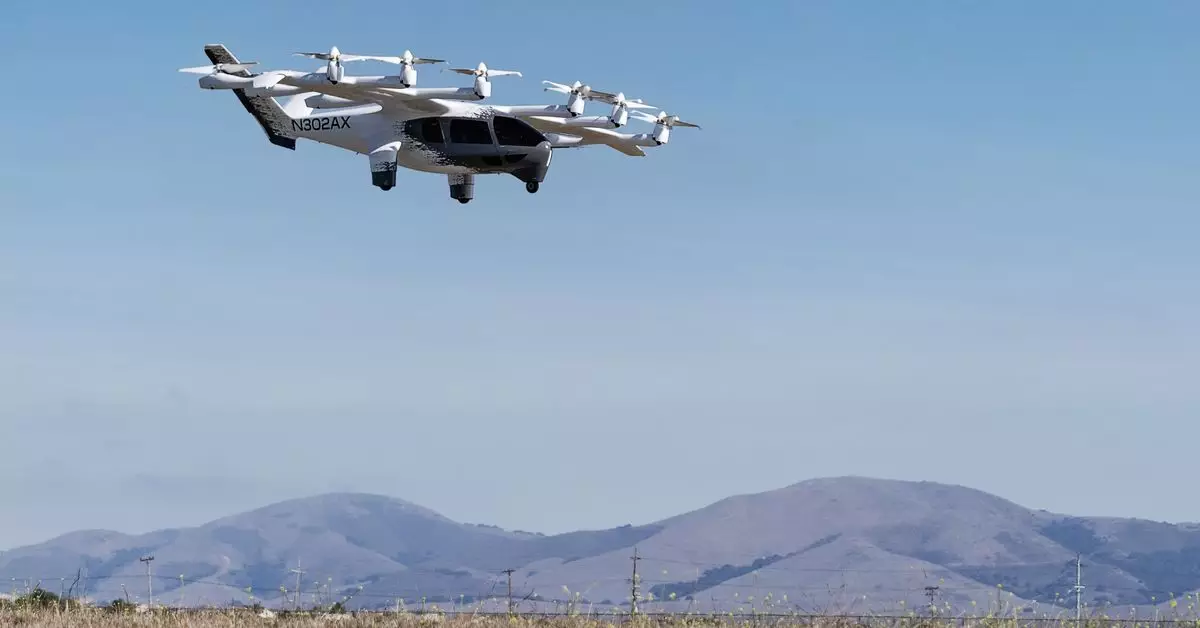In recent years, the aviation industry has witnessed transformative advancements driven by electric technology. Leading this shift is Archer Aviation, an electric vertical takeoff and landing (eVTOL) company that is making significant strides in military aviation. With the recent announcement of a collaboration with Anduril Industries—founded by defense entrepreneur Palmer Luckey—Archer is positioning itself as a contender in the defense contracting space. This trend not only opens new avenues for revenue but also emphasizes the growing intersection between cutting-edge technology and military applications.
Archer Aviation has embarked on a formidable funding journey, securing an injection of $450 million to support its initiatives within the defense sector. Among its notable investors are high-profile firms such as Stellantis and United Airlines, alongside newcomers like Wellington Management and the Abu Dhabi-based investment company 2PointZero. This funding fuels Archer’s ambitious plans and further solidifies its status in an industry that, until recently, was still in the nascent stages of adopting electric technology. With a total of $2 billion raised since its inception, Archer’s financial backing serves as a robust foundation for its upcoming hybrid VTOL aircraft.
The company’s strategic relationship with Anduril Industries signifies a larger trend in which technology firms are seeking to capitalize on military contracts. Together, they aim to develop next-generation aircraft tailored for military functions, particularly in surveillance and reconnaissance. This collaboration illustrates a paradigm shift in which innovative civilian technologies are being repurposed for defense, thereby enhancing the operational capabilities of military forces.
For Archer, the journey does not end with funding and partnerships. The company must navigate the rigorous government certification process to bring its eVTOL aircraft to market. Achieving Federal Aviation Administration (FAA) approval is not merely a formality; it is a vital step towards establishing a new standard for air travel. As the FAA introduces final regulations for eVTOL vehicles, Archer has found itself in a position of optimism, commending the agency for its clarity and direction. This regulatory framework is designed to ensure safety and operational standards, a crucial aspect of gaining public trust and acceptance for air taxis.
Indeed, the FAA’s recent guidelines represent a significant milestone for eVTOL manufacturers. However, the road to implementation is fraught with challenges. While Archer is making progress, it shares the landscape with numerous other aviation startups. Companies such as Joby Aviation, Volocopter, and Beta Technologies are also vying for FAA approval, each with their unique approaches to transforming urban air mobility. As competition heats up, ensuring compliance with regulations while maintaining operational efficiency will be paramount for success.
Despite the excitement around electric aviation, the industry faces a harsh reality; not all players will thrive. A stark reminder of this precarious landscape is Lilium, a German startup that recently declared insolvency for two of its subsidiaries. Such setbacks highlight the risks inherent in pioneering a relatively untested sector. Archer’s success hinges not only on its technological advancements but also on its resilience in navigating a volatile market.
The growing entanglement with the military-industrial complex raises questions about the implications for Archer’s long-term vision. While partnerships with defense contractors can provide vital revenue streams, they also lead to scrutiny over ethical considerations and the impact of technology on society. As Archer and its counterparts pursue military contracts, they must balance innovation with the responsibility of their technologies.
As Archer Aviation continues to evolve, the focus on military applications unveils both opportunities and challenges. With an eye towards building the future of air travel, the company is strategically positioning itself to become a key player in both civilian and military sectors. The successful launch of its hybrid VTOL aircraft and subsequent FAA approval will be pivotal in determining not just Archer’s fate but the future of electric aviation as a whole.
Archer Aviation is embarking on an ambitious course that interweaves cutting-edge technology with traditional military frameworks. The stakes are high, and the outcomes will not only shape the company but may also redefine the landscape of modern aviation. As regulatory bodies and investors watch closely, the unfolding narrative of electric aviation will reveal whether these strategic maneuvers will lead to sustainable success or end in disappointment.


Leave a Reply